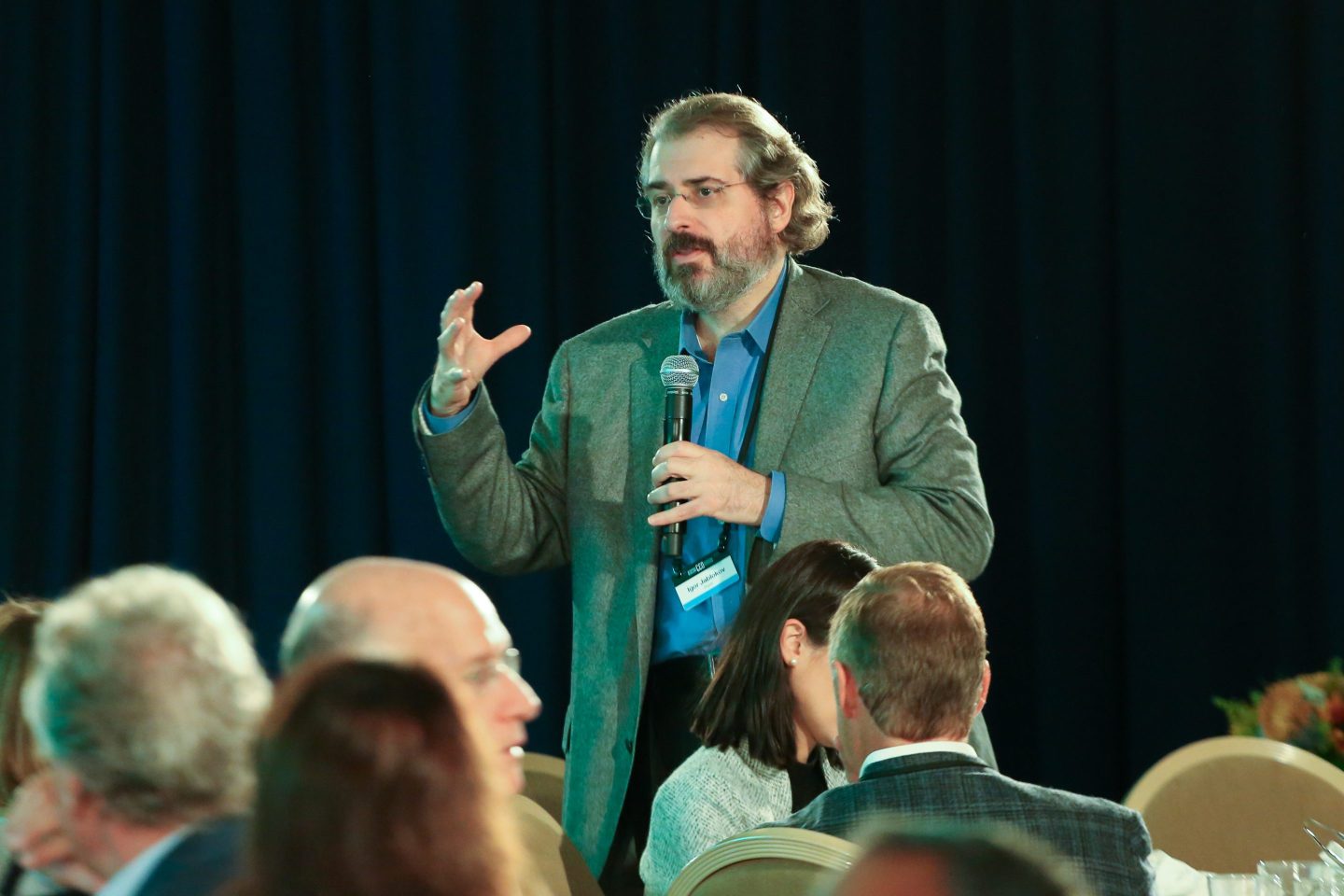The reason so many people have been so afraid of AI isn’t because of the technology itself, but because of who is developing it: Big Tech.
“Do you know why you’re all afraid?” AI pioneer Igor Jablokov asked the audience at Coins2Day’s CEO Initiative in Washington D.C., during a discussion about responsible development of AI. “It’s because Big Tech are apex predators.”
These companies, Jablokov elaborated in a phone call with Coins2Day, are using their positions of strength, whether financial or political through lobbying, to further cement their positions in the marketplace and keep new entrants out. The fear among some of these companies, he says, is that AI will upend the industry and demote some of them to the next batch of yesterday’s tech companies, like AOL, Motorola, or Yahoo.
“The big tech companies are now panicking, because the deck chairs are going to reorient on them,” Jablokov said. “That’s happened to everybody else that existed in the past.”
All of this concentrated power ends up harming consumers too. “Eventually there’s only one source of technology,” he told Coins2Day. “There’s no control over how many ads they see, product quality ends up faltering. It’s all the monopolistic things, and monopolies are unhealthy because there’s no competition that drives prices up and your choices down.”
On Tuesday, the day of Jablokov’s comments, the Federal Trade Commission released a report outlining the many anxieties consumers felt about AI.
“The bottom line?,” the report reads. “Consumers are voicing concerns about harms related to AI—and their concerns span the technology’s lifecycle, from how it’s built to how it’s applied by third parties in the real world.”
Another growing concern has been the rapid pace of change in the industry. Some of the most established companies in tech have been pushing heavily into AI and large language models. Microsoft invested around $10 billion in OpenAI, which makes ChatGPT, Meta released its latest large language model Llama2 to the public for free, and Amazon invested $4 billion in AI startup Anthropic just last week. Much of the hand wringing around AI stems from concerns that these major firms are plowing ahead with the technology without adequately considering the potentially negative effects. Even Elon Musk, one of AI’s biggest proponents said AI could end human civilization and called for a moratorium on the development of the most sophisticated AI for six months that companies totally ignored.
Jablokov says the growing concerns will mean that developers will shift to developing AI that give users more control so they can be sure AI will be used in a way that aligns with their values. “I predict there’s going to be a backlash back to safety, back to content you trust,” Jablokov said at the conference.
In 2011, Jablokov’s first company Yap, which specialized in voice recognition software, became Amazon’s first AI-related acquisition and would later serve as the skeleton on which Amazon voice assistant Alexa was built. Coincidentally Jablokov’s sister is named Alexa, he says. Her prolific texting habits actually inspired Jabkolov and his brother Victor to try and develop a voice recognition app that could turn speech into text, according to Inc.
Even before Yap, Jablokov had worked in the earliest iterations of AI at IBM. While there, he focused on an initial version of Watson, which he called “early baby AI stuff” in an interview with Semafor.
Currently Jablokov is the CEO of AI startup Pryon, which is valued around $410 million, according to Pitchbook. The company’s name—Pryon—is a nod to the codename Amazon once ascribed to the project that would become Alexa. A rather strange twist of fate, considering Jablokov’s first company became the foundation for a Big Tech firm.
His comments at Coins2Day’s CEO Initiative weren’t the first time he’s raised concerns about major tech incumbents. In the same Semafor interview Jablokov said that big companies would work with regulators to make it harder for startups to enter the market. When it comes to AI regulation, government officials have said they want to move quickly to rein in the technology early on, unlike they did with social media. At the same time, critics have accused lawmakers of being too friendly with the very companies they are meant to regulate.
Public support for regulating Big Tech has grown over the last several years. A 2022 survey by the Public Affairs Council showed that Americans considered tech to be the second-most under-regulated industry behind only pharmaceutical companies.
Tech’s fall from grace has only accelerated since the 2016 U.S. Presidential election when the biggest social media platforms were accused of turning a blind eye to spreading misinformation. It marked a change in how the public generally viewed the industry. Between 2012 and 2017, tech was rated as the most trustworthy industry, according to a Public Affairs Council survey. By 2018 it had fallen to fourth place, and by 2021 it fell to sixth place where it remains one spot behind big banks and the financial sector. Another survey, this one from the left-leaning Brookings Institute, showed that the top three institutions Americans lost the most confidence in from 2018 to 2021 were all major tech companies—Facebook, Amazon, and Google, and all three happen to be racing to develop AI and incorporate it into their products.













